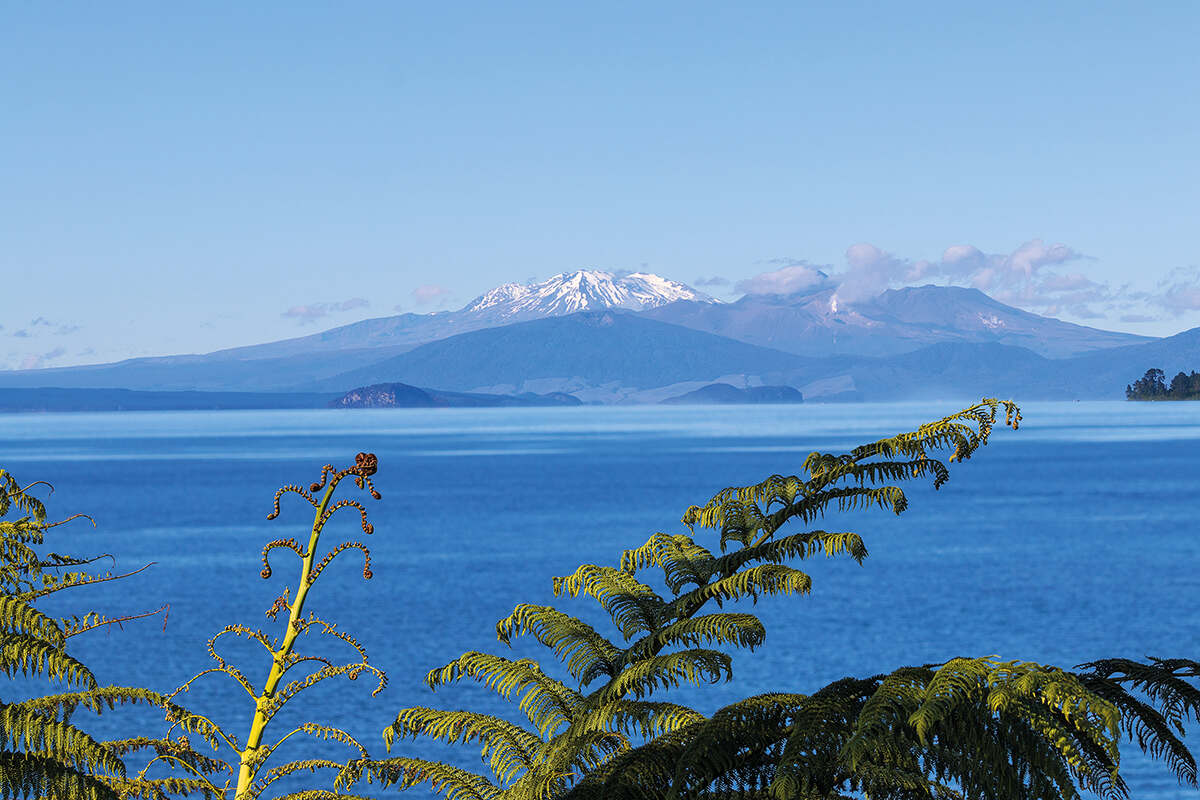
The threat posed by a major volcanic eruption is largely ignored, but there are ways to reduce the risks
By
Scientists monitoring New Zealand’s Lake Taupō volcano, which caused one of the largest eruptions of the past 5,000 years, have raised the alert level for the first time. It was in 232 CE that the volcano erupted with extraordinary violence, sending 120 cubic kilometres of pumice and ash into the atmosphere. More recently, nearly 700 small earthquakes have been recorded at its caldera since May this year, signalling a shift in activity.
This isn’t the first episode of volcanic unrest at Taupō and the likelihood of an eruption is still very low. The alert-level change is a result of improved monitoring and increased knowledge from research. But researchers at the University of Cambridge’s Centre for the Study of Existential Risk (CSER) say that if such an event were to happen, the world would be ‘woefully unprepared’.
Michael Cassidy is a professor of volcanology whose research focuses on understanding what controls volcanic explosivity, improving forecasting of large-magnitude eruptions, and learning what, if anything, we can do to minimise their impacts. ‘We’ve come to the conclusion that there are things that can be done, and we’re not doing enough of them,’ he says.
The first steps, says Lara Mani, a researcher at CSER, would be to establish an international network and increase the monitoring and early-warning systems for volcanic eruptions in highly populated areas. Some of the regions in which monitoring is most lacking are places where volcanoes are most active: Indonesia, the Philippines and other parts of Southeast Asia. ‘You can mitigate a lot of risk right there,’ she says. Making sure communities are more resilient to climate change would also help them manage if faced with multiple hazards.
The next step is volcano geoengineering. ‘We still think this is quite far off,’ says Cassidy, ‘but we could be in a position to make volcanoes a bit safer if we invest in research now.’
Cassidy imagines a scenario where an unmanned plane could release sulphur aerosols into the atmosphere during an eruption, preventing a potential volcanic winter (in which volcanic ash and droplets of sulfuric acid and water obscure the Sun, reducing temperatures on a global scale). And a project to assess the possibility of magma manipulation to moderate its explosivity has already received EU funding.
At the moment, however, Mani says that neither the existential risk experts, nor the volcanologists, are taking large-magnitude eruptions seriously. ‘It’s seen as being a bit sensationalist,’ says Cassidy. ‘Some scientists have even been somewhat discredited over it. For that reason, I think there hasn’t been much work done on this issue in recent years.’
In comparison, hundreds of millions of US dollars have been spent on planetary defences against asteroid and comet impact, which would have a comparable climatic impact, but are considerably less likely to happen.
Mani describes the moment in the aftermath of the huge eruption of Hunga Tonga–Hunga Ha’apai in December 2021, when volcanologists were left without the support of a globally coordinated network similar to that of the planetary defence community, as ‘very sobering’. Emails were shared, questioning, ‘Is this serious? What does this mean? Is this going to cause climatic feedback?’ The most recent research suggests that yes, it might. ‘That’s why we think Tonga is an important moment for our field and for volcanology,’ she says. ‘It’s our wake-up call.’




